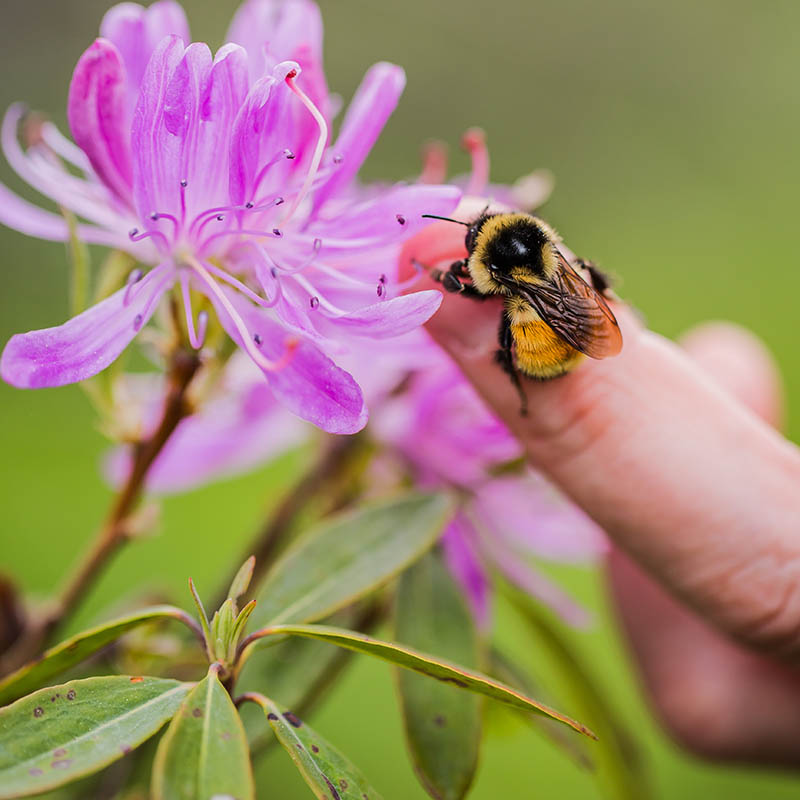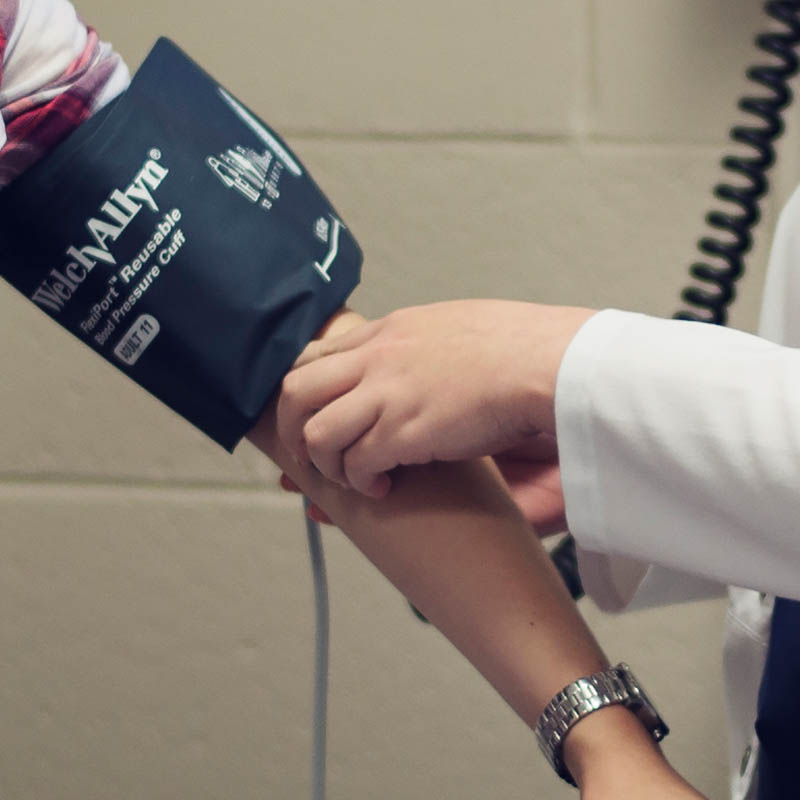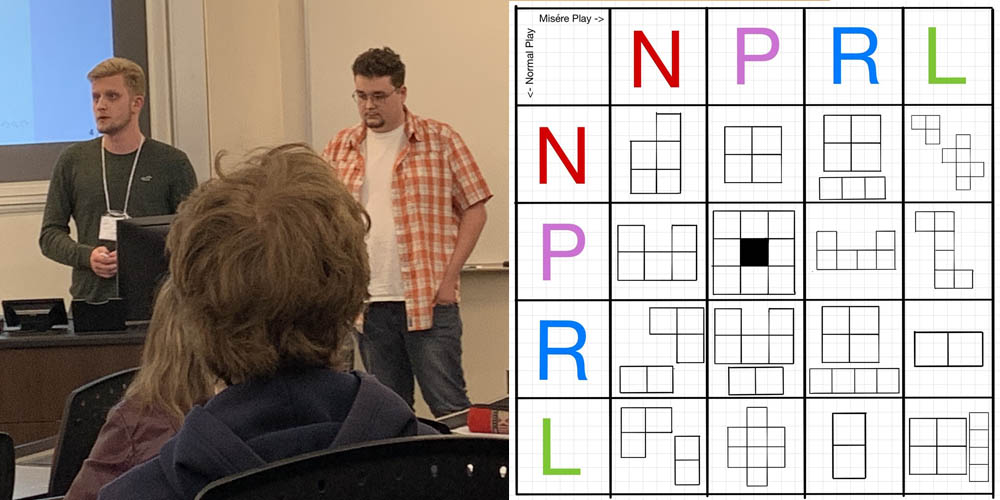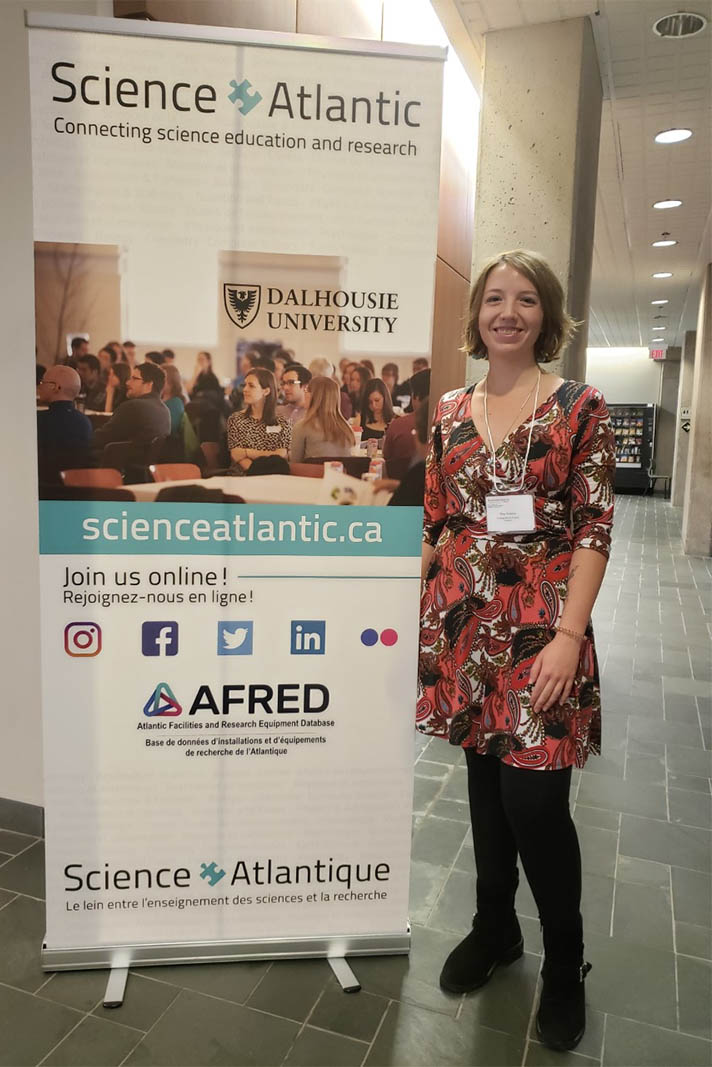Research Report: 2019
▼ Choose a report:

Powered by Research & Graduate Studies

Powered by Arts and Social Science

Powered by Fine Arts

Powered by Science and the Environment


Michael Willette, left, and Aaron Dwyer presented their research (second photo) at the 2019 Science Atlantic Mathematics and Statistics conference.

Abby Anderson's participation in the Science Atlantic conference involved presenting the cumulation of two years of NSERC USRA work with Dr. Olga Vasilyeva of Grenfell Campus. The project was titled Modelling of Spruce Budworm Population. "We worked with partial differential equations to develop a diffusion-reaction-advection model for the Spruce Budworm population of Newfoundland. We used MATLAB software and geometrical concepts to determine a lower bound for the critical advection speed. This is the lowest speed at which a population can survive while subjected to an advective force. In the case of Newfoundland, wind provides the advective force as it imposes a directional bias on the movement of individuals of the population." Submitted photo
The Undergraduate Student Research Awards (USRA) program provides undergraduate students across Canada with funding to undertake full-time, hands-on research work in an academic setting. The award, funded through the Natural Sciences and Engineering Research Council of Canada (NSERC), helps students explore their interest and develop their potential for pursuing a research career in the natural sciences and engineering.
In 2019, eight students at Grenfell Campus were awarded USRA funding, allowing them to work on applied research projects full-time over the summer months. Their research covered a variety of disciplines including mathematics, physics, boreal ecosystems, and food sciences.
Brett Wells-Keough (supervised by Dr. Jianghua Wu) studied the effects of warming, nitrogen fertilization and vegetation composition of greenhouse gas emissions in a boreal peatland in western NL. Abby Anderson (supervised by Dr. Olga Vasilyeva) studied modeling of spruce budworm populations. Nicole Walsh and Amber Critch (supervised by Dr. Raymond Thomas) examined the role of lipidomics in health and disease. Nicholas O'Neill (supervised by Dr. Svetlana Barkanova) studied the proton radius puzzle involving tree-level muon-proton scattering and the structure of the muon. Aaron Dwyer and Michael Willette (supervised by Dr. Rebecca Milley) completed their placements studying games and graphs.
"Obtaining USRA funding has given me important research experience that helped prepare me for future endeavors and empowered my belief that hard work can pay off," said Nicholas O'Neill. Some students from the 2019 cohort plan pursue advanced graduate degrees in their area of study. Abby Anderson, for example, is currently applying for M.Sc. programs in applied mathematics.